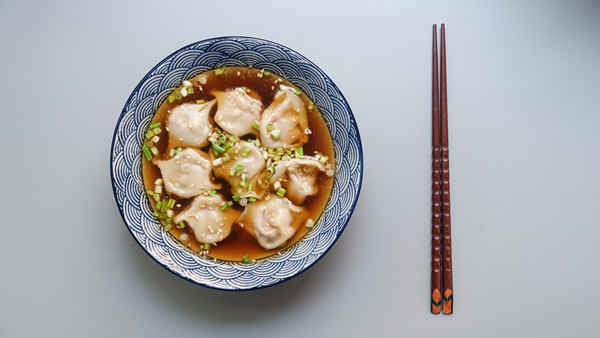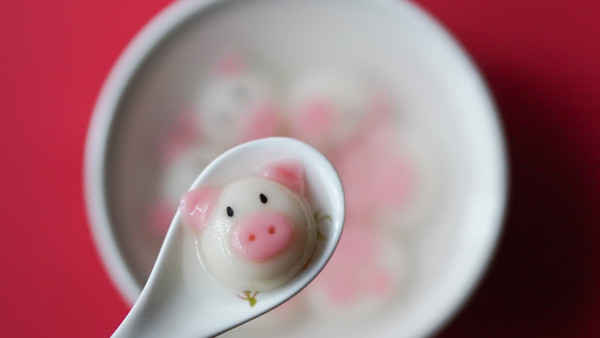链接复制成功!现在分享给好友吧。
It’s 5:00 in the afternoon. The cold, white-sleeted world receives that last daylight. The glimmering shadow of snowy sunsets arrives earlier. It strikes the white-covered world abruptly then vanishes as quickly. Strangely, it looks like it’s already evening. The lamposts, covered with snow, lights up early. Stores start to close sooner. Night retails open expeditiously. The days are short, and the night is longer. The night perpetuates its increasing coldness through the early darkness. Winter Solstice officially arrives.
冬至 (Dōng Zhì) is the 22nd solar term of the year. It is among the first solar terms ever established. It starts on December 22 and ends on January 5. Winter solstice is an imperative solar term in the Chinese calendar because it marks the first transition of longer nights and shorter days. During this time, daytime will become increasingly longer, bringing the coldest climate to invade all the Northern part of the globe. That’s why Chinese people call it “JinJiu 进九 (jìn jiǔ),” which means once Winter solstice comes, we will meet the coldest weather will begin.
Explain the knowledge point
冬 (dōng) First tone, winter
至 (zhì) Fourth tone, reach, arrive, solstice
冬至 (dōng zhì) Winter Solstice
Nowadays, regions of China commemorate Winter Solstice. In some areas, they consider it to be a predominant holiday. The Chinese people in the Northern part of China arrange bountiful feasts for Winter Solstice. Along with many delicacies, ravioli and dumplings are the traditional food choices during the celebration. On the other hand, Southerners still have dumplings as a part of the celebration. However, instead of the conventional flour-made, they have ones made from rice and long noodles. In other regions, they eat tangyuan, a dumpling created from glutinous rice. In China, rice dumplings have many purposes. Not only is it an integral part of Chinese cuisine and celebration, but they also use it as an offering to ancestors and gifts to relatives.
Let us delve more into the traditional Chinese culture during Winter Solstice.
Eat Dumplings吃饺子 (Chī Jiǎozi)

The Winter Solstice is one of the essential times of the year. After all, this time is a time for family and togetherness. People in Northern China celebrate this day with a dumpling feast. Family members and relatives enjoy a bountiful meal of dumplings.
Such practice dates back to the end of the Eastern Han Dynasty (AD25-220). During this time, people in Henan province suffer from a typhoid epidemic and extreme frostbite due to the cold temperature. A legend says that “Medical Saint” Zhang Zhongjing solved this afflictive dilemma through dumplings mixed with Chinese medical herbs.
He prepared a hot meal consisting of mutton, hot peppers, and herbs to help people adapt to the cold. He wrapped these into ear-shaped dough skin. That meal saved the lives of people in the Henan province.
Wǒ chī le yì wǎn jiǎozi
我 吃 了 一碗 饺子。
I eat one bowl of Chinese dumplings.
Māma duān shàng le yì wǎn rè qì téng téng de jiǎozi
妈 妈 端 上 了一 碗 热气 腾 腾 的 饺子。
Mother served a piping hot bowl of Chinese dumplings.
Eat Sweet Dumplings/Tang-Yuan吃汤圆 (Chī Tāngyuán)

Another famous dish during the Winter Solstice is Tang-Yuan. Tang-yuan is sweet glutinous rice filled with sweet black sesame paste. People usually serve Tang-Yuan as a desert. People in southern China will make and eat tangyuan during the celebration of the Winter Solstice. It is perfect for it is known to symbolize the reunion, harmony, and unity of the family.
Zài dōng tiān chī xiē ruǎnnuò de tāngyuán hěn nuǎnhuo
在 冬 天 吃 些 软糯 的 汤圆 很 暖和。
Eating soft sweet dumplings in winter is very nice.
Wǒ ài chī tāngyuán
我 爱 吃 汤圆。
I love eating Tang-Yuan.
Now that we are well aware of the traditions during Winter Solstice, we will delve into the knowledge point to expound our knowledge even better.
Winter solstice is perhaps the coldest season of the year. The temperature will continually drop, freezing everything. However, this time is also a time of gratitude and unity. Celebrate Winter Solstice with your family! Appreciate them as invaluable blessings in your life. Eat dumplings and Tang-yuan as you show your affection to them. In addition, always remember “Stay warm and healthy, and good luck in the new coming year. Happy winter solstice.”
Would you like to know more about traditional Chinese culture, please check them below:
Traditional Chinese Culture: To know about 大雪 (DàXuě)
Minor Snow: Chinese Culture and traditions during 小雪 (Xiǎoxuě)
Traditional Chinese Culture: How well do you know 立冬 (Lìdōng)?
Your first 1-on-1 Chinese lesson offer